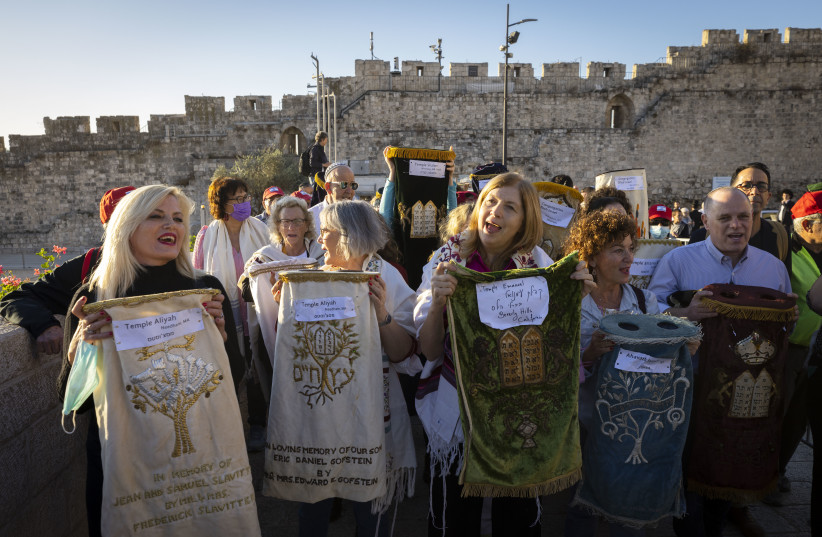Prime Minister Naftali Bennett plans to intervene in resolving the dispute over the controversial Western Wall agreement next week by sending his cabinet secretary, Shalom Shlomo, to meet with representatives of the Reform and Conservative movements next Tuesday or Wednesday.
The meeting was promised to Labor MK Gilad Kariv in return for his agreement to temporarily avoid attending the services of the Women of the Wall at the Kotel and avoid tension at the holy site.
“We aren’t yet at the stage of the government returning to adopting the Kotel framework, but Bennett cannot avoid dealing with the issue anymore,” a source involved in the process said.
The government is obligated to provide an update on the implementation of the Western Wall agreement to the Supreme Court by the beginning of next week.
As part of President Isaac Herzog’s efforts to foster a discourse of unity and moderation between all parts of Israeli society, including actors involved in the matter of prayer at the Western Wall Plaza, the president met on Wednesday with Kariv, who represents the Reform Movement; with MK Alon Tal (Blue and White), who is Conservative; and with other representatives of the Reform and Masorti (Conservative) movements and the Women of the Wall.

In the meeting, Herzog listened to the positions and suggestions of the representatives of the different movements. The president emphasized that he wishes to lower temperatures in order to prevent baseless hatred at the site. He condemned all manifestations of physical and verbal violence and said there is a need for responsibility, restraint and efforts to find ways for all parts of our nation, in Israel and the Diaspora, to move forward peacefully.
The Western Wall agreement passed by cabinet resolution in 2016, but was indefinitely suspended by the same government in 2017. It would have seen the current prayer platform for non-Orthodox prayers at the Robinson Arch area at the southern end of the Western Wall designated in law as a prayer space for non-Orthodox worship, and would have given representatives of the Reform and Conservative movements a place on the site’s governing committee. At the same time, the central Western Wall plaza would be designated in law as a place for Orthodox prayer only.
Meanwhile, in another sensitive matter for Diaspora Jewry, the Jewish Agency chairmanship selection committee met on Tuesday and decided to move forward with the selection process, despite Alternate Prime Minister Yair Lapid’s failure to present the government’s candidate. It was the third time Lapid failed to meet a deadline on the issue.
The committee set additional meetings in December and January to narrow down the list of candidates. In addition to the eight candidates who have been listed for months, former Haifa mayor Yona Yahav, nuclear physicist Vladmir Herczberg and another candidate have joined the race. Lapid could still field a candidate as well.
“There is frustration in both the selection committee and among the candidates that a process that was supposed to be organized and transparent has been far from it,” one of the candidates said.
Agency chairmanship candidate Michael Oren made a controversial statement on Wednesday when he told Radio 103 FM that “what caused the Iranians to expedite the [nuclearization] process and violate all the agreements was the election of [US President Joe] Biden.”
Asked if their decision was also impacted by the election of Bennett, Oren said he did not think so.
“As someone who has been intimately involved in the Iran issue for 15 years, I feel compelled to interview about it at this critical juncture and clear up some misunderstandings,” he said.
Jeremy Sharon contributed to this report.
